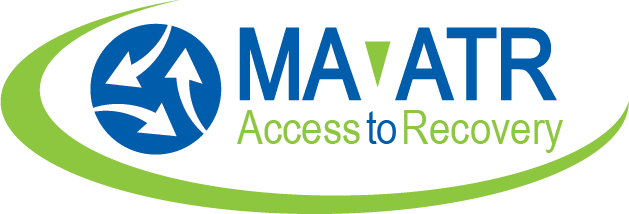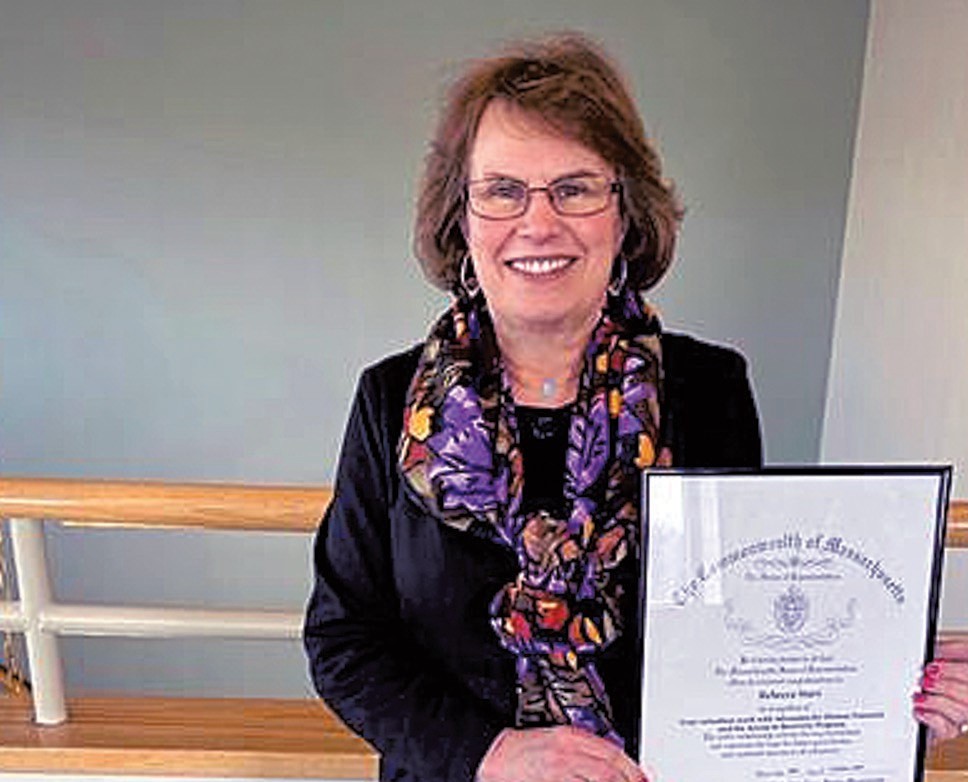ASHLAND – Rebecca Starr, project director for the consulting agency Advocates for Human Potential, has been recognized by the Massachusetts House of Representatives for her work with AHP and its highly successful program Access to Recovery. Representative Aaron Vega of Holyoke delivered the proclamation to the Legislature. In February, Starr will make a presentation at the State House about the program.
The goal of Access to Recovery is to empower Massachusetts residents dealing with substance abuse to move beyond recovery and live meaningful and fulfilling lives. The program operates in Boston, Worcester, New Bedford, and Springfield/Holyoke. ATC has helped more than 25,000 Massachusetts residents.
Starr’s previous experience includes non-profits, health care, elder care and higher education. She attributes her striving to help others in part to her Jewish background.
“My whole life has been steeped in Jewish culture and religion,” said Starr, who lives in Ashland.
In addition to her multiple responsibilities at work, she serves on the board of directors of Temple Israel of Natick, sings in the temple’s choir and, as an active member of the temple’s sisterhood, is planning their upcoming Sisterhood Shabbat.
Starr lived in Israel for two years and speaks fluent Hebrew. As a teen, she was active in USY and later led pilgrimages to Israel as well as USY On Wheels programs, in addition to serving as a counselor at Camp Ramah. As a student at Rutgers University, she was active in the school’s Hillel chapter and headed its United Jewish Appeal campaign.
“I always wanted to help people,” recalled Starr, who grew up in Philadelphia. “My parents were role models; they were devoted to caring for the elderly. I grew up feeling conscious that there are people who live challenging lives.”
Starr holds an MSW, a Master’s in Jewish communal service and an MBA. One of her early jobs was directing the Hillel at SUNY Albany. She later served as membership director of the Stoughton Jewish Community Center.
For the past 10 years, Starr’s career has been dedicated to enabling those with substance abuse issues to regain their place in society.
“The focus of most programs is recovery, but people also need help adjusting to life without drugs, to reentering the community,” she says. “We provide nontraditional recovery support services in the form of a recovery plan that lasts for six months.”
“Most have been involved in the criminal justice system,” she adds. “Treatment is certainly a part of the story, but people also need transportation, housing, childcare and job training.”
ATR staffers provide funds and guidance in shopping for such items as clothes, cell phones, computers and beds. Items are paid through grants using vouchers, not cash.
“Many need IDs; some have to pay fines in order to get a driver’s license,” Starr says.
“Our program helps our clients to define goals, the main goal being to be in a better place,” she notes. “We also direct them to resources for better health, help with copays and assist them in getting enrolled in MassHealth.”
In some cases, ATR pays for gym memberships, while connecting others to resources for mental and spiritual health, and sometimes helping clients reconnect with their families. To aid with housing, the Massachusetts Legislature has earmarked $2.7 million.
“We will be starting a new housing program this year to help people find their way to stable, secure, safe homes,” Starr says.
The most important factor in Starr’s work is helping people find a purpose, a sense of meaning.
“Everyone needs a place to go every day, a routine, a reason to get up,” she says. “This could be employment, education or volunteer work.”
Starr’s program finds job training as well as help with tuition for programs in fields such as food service, hospitality, customer service, commercial cleaning, office work, truck driving and construction.
“We’re looking for entry-level jobs with career paths and sustainable wages,” she says. “One constraint is that some occupations are not available if a person has a criminal record.”
Starr is working with community colleges to develop technology programs. So far, ATR job training has an 85 percent completion rate, a 300 percent increase in employment and a client satisfaction level of 95 percent.
“Ours is one of the few programs in the U.S. that customizes employment services for those with substance abuse issues,” she says.
The U.S. government is now looking into this area, and Starr recently participated in a panel on this issue in Maryland.
“A federal guide of best practices is in the works,” she says. “The federal government is finally getting it: that it’s not just a matter of treatment, but a transition back to community life.”
For more information on ATR, visit ma-atr.org.

